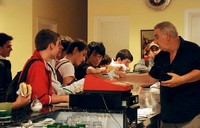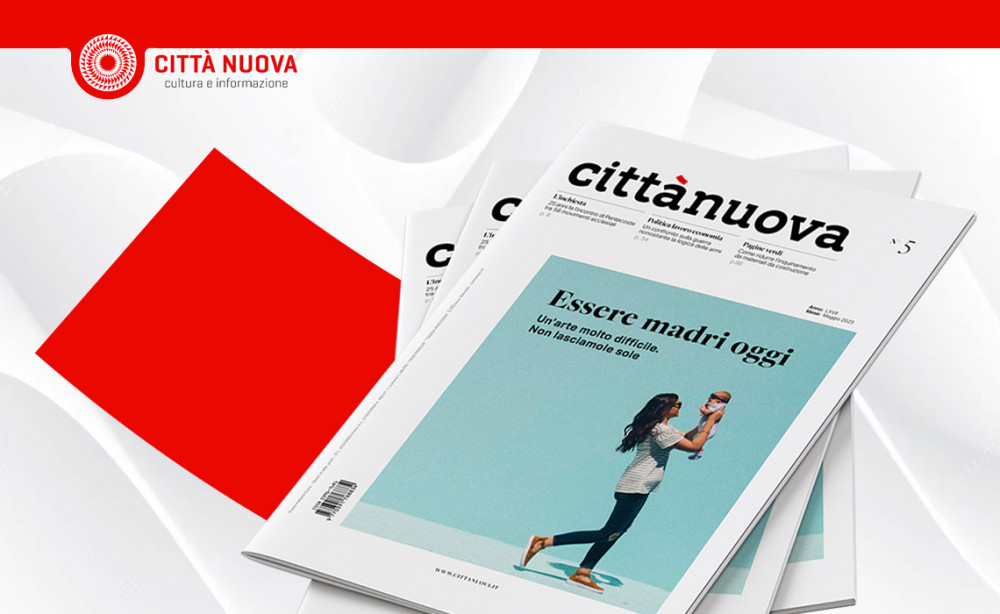Even a simple thank-you at the counter hides moral and economic values.
By Luigino Bruni
Published in Cittá Nuova, n.23/2010 on 10/12/2010
 I’m invited to dinner; I bring a tray of pastries, and my host says “thanks”. I drink a coffee at the train station, and after I’ve paid a price, I say, “thanks” to the waiter. These are two thank-yous said in seemingly very different contexts: gift and friendship in the first, contract and anonymity in the second. Still, we use the same word, “thanks”. What do these two facts have in common? They are free meetings between human beings. The thank-you which we say not only to our friends but also to waiters, bakers or cashiers at the supermarket, is not only good manners or habits. That thank-you expresses recognition that, even when we’re doing nothing more than our duty, by working, there is always something more involved. Besides, we could say that work truly begins when we go beyond our duty and put all of ourselves into making lunch, tightening a screw, or giving a lesson at school.
I’m invited to dinner; I bring a tray of pastries, and my host says “thanks”. I drink a coffee at the train station, and after I’ve paid a price, I say, “thanks” to the waiter. These are two thank-yous said in seemingly very different contexts: gift and friendship in the first, contract and anonymity in the second. Still, we use the same word, “thanks”. What do these two facts have in common? They are free meetings between human beings. The thank-you which we say not only to our friends but also to waiters, bakers or cashiers at the supermarket, is not only good manners or habits. That thank-you expresses recognition that, even when we’re doing nothing more than our duty, by working, there is always something more involved. Besides, we could say that work truly begins when we go beyond our duty and put all of ourselves into making lunch, tightening a screw, or giving a lesson at school.
One truly works when you begin to add “Mario” when addressing Mr. Rossi or “Luigino” when addressing Professor Bruni. Instead, when one stops before crossing this threshold, work remains too similar to what that automatic coffee machine does. This is where we find a paradox: workers and directors of every business know that work is truly work and brings the fruits of efficiency and effectiveness when it expresses an excess to what is laid out in one’s contract or duty – when it is a gift (as N. Alter’s most recent book Donner et prendre reminds us).
Today, business is not able to recognize that “something more” which is the gift present in human work. If businesses use classical incentives (like money) to recognize the gift contained in work, that “something more” of gift becomes duty and disappears. Instead, in order to avoid this disappearance of gift, businesses and their directors do nothing, and as time goes by, a worker’s surplus production grows less, producing sadness and cynicism in him, and worse results for the business.
It's this impossibility to compensate the surplus in work which is one of the reasons why, in all jobs (from laborers to university professors), people almost always have a deep crisis after the first few years. They realize that after having given the best of them to that organization without feeling truly recognized for what they have truly given, which is always immensely greater than the value of the wages received. The art of managing organizations today is above all in inventing new ways to give recognition for such gifts.







